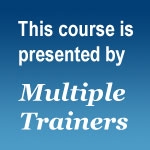

Search Results: giving
-
Ask the Trainer: Guidance for NVC groups on when and how to make requests, especially negative ones.
-
Veteran Trainer Sylvia Haskvitz provides an in-depth discussion of NVC empathy.
-
Ask the Trainer: Is a confidentiality agreement typically used in NVC practice groups?
-
Ask the Trainer: Share a list of request types, examples, and a strategy for formulating them.
-
Exploring how to share NVC in a school environment where others may not yet understand its value.
-
Ask the Trainer: Exploring how unconscious motivations influence the needs we identify and express.
-
Exploring ways to stay compassionate and connected when someone seems angry or controlling.
-
Exploring how blame hides our inner voice and fuels pain through self-judgment and stories.
-
Kelly Bryson explores courageous honesty and how truth shared openly deepens connection.
-
Ask the Trainer: Get guidance on working with enemy images and exercises that bring relief.
-
Ask the Trainer: "In trainings I say our jackals are thoughts and now I've come to wonder if all thoughts are jackals...?"
-
The NVC Circle of Life is a mandala illustrating the process and consciousness of Nonviolent Communication. Mandala literally means "sacred circle" and symbolizes wholeness, balance and harmony.
-
Join CNVC Certified Trainers, Raj Gill and Mary Mackenzie as they explore the Nonviolent Communication process of Empathy. This audio will support people with a basic understanding of Nonviolent Communication who want to deepen their ability for empathic presence.
-
Trainer Tip: The ways that we interact with our children shape the way they will interact in their world. How do your actions model compassion, tolerance, and love for your children?
-
Join CNVC Certified Trainer Arnina Kashtan as explores interdependence, autonomy, valuing self and others, and power-sharing in your relationships. Free yourself to honor your longing for community, belonging, and love.
-
NVC Mingle is a fun group exercise to practice NVC principles and create quick connections with others.
-
Inbal answers a parent's question about praise and offers a perspective on how praise translates into the NVC framework.
-
Trainer Tip: Q: How do we get the love we want? A: Ask for it.
-
Trainer Tip: Mary explains why success isn't dependent upon another person's pain, by reaching for consensus instead of self-sacrifice.
-
Last year, I planted my vegetable garden in February. It was an enormous amount of work to get it ready. This year, we decided to move the garden farther away from trees (to avoid the ongoing tree root issue and allow more sun). So, we created 4 new beds. Now, they are ready to be planted, and yet… forward momentum has stalled.

Quick Links
Subscription Preferences
Stay In Touch!
Looking for ways to keep up with NVC Academy news, get special offers, free resources, or words of inspiration? Here are five ways to stay engaged:


















